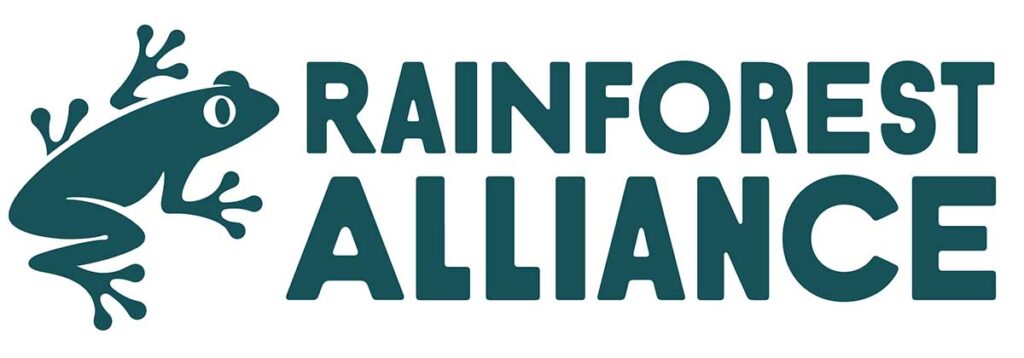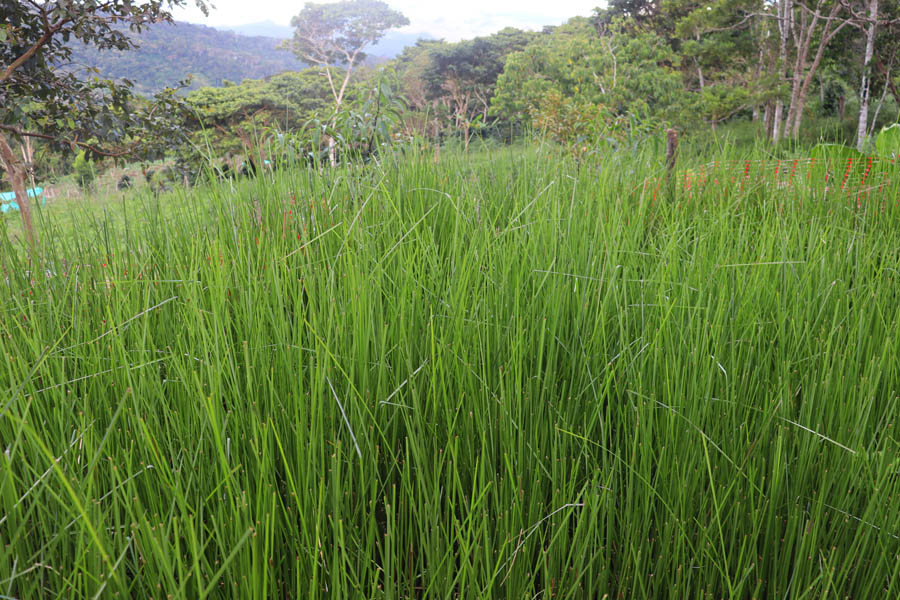The Alianza Café and MOCCA projects, both led by TechnoServe, are promoting the use of Vetiver in Peru for the treatment of coffee honey water, which represents 25% of the post-harvest contaminant load and which, if left untreated, threatens coffee farm ecosystems.
After being successfully tested for the first time in India -and later in China, Australia and Thailand- the “Vetiver” system is now being promoted in Peru among small coffee growers, 85% of whom do not treat their post-harvest honey water at all.
The CAFE Project, executed by TNS and financed by USAID, adopted the technology in 2019, adapting it to the reality of its intervention areas in Peru. To measure effectiveness, the team conducted research on the efficiency and effectiveness of phytoremediation of C. zizanioides (vetiver) against honey water, since there was no scientific evidence on the use of this “grass” in phytoremediation on honey water, or at what stage of growth it is appropriate to use it as honey water phytoremediator.
The C. zizanioides (vetiver) matures at 18 to 24 months (Rivera, 2018) but it could probably be used by coffee growers before its physiological maturity and save time in phytoremediation.
After having seen the encouraging results from a study that took X random samples from 200 ponds established as part of the Alianza Café initiative, the MOCCA project, presented the results to the Rainforest Alliance (RA) as an argument to request the endorsement of the use of vetiver in the RA certification scheme. Thus, in 2022, thanks to the joint efforts of both projects, the RA team of certifying auditors was notified of the acceptance of this technology in the certification scheme.
“This system is aligned with other treatments that RA has been suggesting since the UTZ program, in the Honey Water Treatment Manual, where bioremediation is also mentioned, using infiltration wetlands, which is a technology very similar to vetiver, and therefore RA was pleased to accept this technology and communicate it to the different certifying companies, so that it would finally be accepted by the auditors when auditing in the field under the RA standard”, said José Estete.
MOCCA is a 7-year initiative funded by the United States Department of Agriculture (USDA) through its Food for Progress Program, which seeks to improve agricultural productivity and expand trade in agricultural products. The MOCCA project is being executed by a consortium led by TechnoServe.
In this interview, we spoke with Miguel Osorio, Senior Sustainable Agriculture Attaché, about the scope of this initiative and the benefits of using vetiver as a low-cost technology that opens the window for small producers to treat the water from coffee processing.
What are the benefits of vetiver technology for the Rainforest Alliance to accept it as a suitable treatment for managing honey water?
Vetiver is easily accessible to small producers, it adapts to different livelihoods, and better yet, it is a low-cost alternative. Producers don´t have to make large investments to implement a treatment plant with Vetiver.
An important element is that sometimes maintenance is not considered in treatment plants We tend to believe that they work by themselves, but in reality maintenance is necessary, although vetiver, due to its natural characteristics, does not require a very strict maintenance, just a periodic review should be followed to ensure that the plants are alive, that they are reproducing and therefore a seed bank will definitely be required to be able to plant new plants if necessary.
Another important element is that it produces almost no waste. If we compare it with other treatment plants, which require filter media and produce special wastes, the question is what to do with this waste?. While with this natural filtration system no waste is produced.
However, it will be important to ensure that the honey water entering a plant does not carry organic matter that could clog the system.

From your perspective as an organization that promotes certification standards, what impact or implications does the management of honey water and pulp have on the environment in the production of coffee and in the communities where it is produced?
It has a significant impact on the coffee sector, since much of the solid waste produced on a farm is already being well managed. It is already being composted and used to fertilize vegetables. On the other hand, honey water continues to be a challenge, and by addressing it adequately through these treatment plants, it will significantly contribute in counteracting the pollutants produced at the farm level, especially soil and river pollutants, that have a negative effect on neighboring plots and are associated with the proliferation of insects in general, which are not at all viable for maintaining a healthy environment.
So, it definitely contributes because by using Vetiver, farmers will discharge cleaner water in compliance with the legal requirement, as well as with the certification standard.
This is one of the many challenges of the agricultural sector, mainly of the coffee crop, and as we address this challenge, we are contributing to solving one of the problems that have been left unattended. This is a valid proposal for both large and small farms to manage honey waters produced as a result of the process.
How does the management of honey water through vetiver support waste management processes and help producers meet the criteria of the RA standard for wastewater management?
This solution can be linked directly to Chapter 6, requirements 6.6.1 and 6.6.2, where it specifically demands that producers must treat the water generated by the processing activity. In other words, producers must demonstrate that after processing, a return treatment is given to water, probably not at the level of potable, but enough to be discharged into the environment, in compliance with both the legislation and the certification standard.
In your opinion, what is needed to make this technology scalable among coffee producers, companies and organizations?
This type of technology should be made known through demonstration plots and pilot projects. We can invite you to a field visit, and a tour to show you first-hand how it works. Mass media is another important element, with whom we have to share to inform society as a whole.

How was the inclusion of vetiver received by the companies associated with RA?
This news was well received, especially among some cooperatives that had already ventured into this system, and were having problems obtaining the certification because it was a new technology unknown to the auditors, but after having informed them that this technology has positive results and is aligned to other technologies from previous standards such as UTZ, the organizations that were implementing this technology have given us a positive feedback and are now confident that it will be aligned to the standards and that they will not have any difficulty in complying with them.







